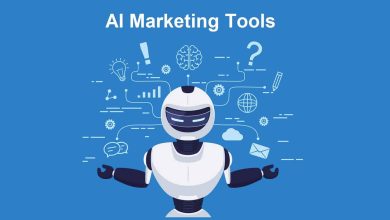
In 2025, the trajectory of marketing has been irrevocably altered with Artificial Intelligence (AI) firmly establishing itself not merely as an auxiliary tool but as the central nervous system driving comprehensive strategic transformations. The sheer scale of this evolution is underscored by the UK’s rapidly expanding AI market, which is projected to reach an impressive £15 billion in 2025, impacting critical sectors from finance to healthcare and transportation. This substantial financial growth mirrors a profound operational shift within the marketing sector itself, where a significant 88% of marketers are now actively incorporating AI into their daily routines to optimise workflows and enhance the acuity of their decision-making processes.
This integration of AI is not a superficial adoption; rather, businesses are demonstrating a clear trend towards embracing integrated AI solutions that permeate their entire marketing ecosystems. This holistic approach facilitates the seamless automation of repetitive and time-consuming tasks, thereby liberating marketing teams to dedicate their expertise and energy to higher-level strategic initiatives. A prime example of this is the widespread implementation of AI-driven chatbots, which now serve as frontline customer support agents available 24/7. These intelligent systems not only provide immediate assistance but also possess the capability to analyse customer interactions in real-time, gleaning valuable insights that can be leveraged to offer highly personalised product recommendations, ultimately enriching and streamlining the entire customer experience.
Agentic AI and dynamic marketing strategies
Furthermore, the emergence and increasing sophistication of agentic AI is fundamentally reshaping marketing strategy. This innovative approach involves the collaborative functioning of multiple AI systems that can autonomously make critical decisions. For businesses operating within the UK, this translates to a powerful ability to dynamically optimise digital advertising campaigns, allowing for real-time adjustments based on performance data. Similarly, pricing strategies can be refined with unparalleled agility, responding to market fluctuations and competitive pressures in an automated and intelligent manner.
Enhanced customer segmentation and personalisation
The precision of customer segmentation is also being significantly enhanced through agentic AI, enabling marketers to target specific demographics with far greater accuracy and efficiency. To illustrate the power of personalisation, one need only consider the example of Netflix, whose remarkably accurate content recommendations, powered by AI, have become a benchmark for effective, data-driven engagement. Businesses in the UK are increasingly poised to leverage this type of collaborative AI to achieve similar levels of sophisticated personalisation in their marketing efforts.
The advent of generative AI represents a true paradigm shift in the realm of content creation, empowering marketers to produce highly personalised and engaging content at an unprecedented scale and speed. The success story of Wowcher, a prominent e-commerce entity, serves as a compelling testament to the transformative potential of this technology. By drawing inspiration from Netflix’s personalisation model, Wowcher has effectively deployed AI not for entertainment recommendations but for the precise tailoring of its social media posts and online advertisements, demonstrating the versatility and broad applicability of AI-driven personalisation.
Impact on marketing ROI
This capability extends to the crafting of bespoke marketing messages, the creation of dynamic and adaptive advertisements, and the development of interactive customer experiences, all of which contribute directly to a significant enhancement in return on investment. Empirical evidence further underscores this impact, with a recent survey revealing that an impressive 93% of businesses that have integrated AI into their marketing operations have achieved their marketing goals more rapidly, while 56% have experienced an increase in marketing output volume, and 50% have noted a marked improvement in the overall quality of their marketing deliverables.
Addressing the talent gap
Despite the undeniable advancements and transformative potential of AI in marketing, a significant hurdle persists: the prevalent and widening talent gap. Marketing professionals report a lack of adequately skilled employees as a substantial impediment to fully capitalising on the capabilities that AI offers. This stark reality necessitates a proactive and strategic response. The path forward hinges on fostering a robust culture of continuous learning, one that encourages and facilitates the reciprocal exchange of knowledge between teams operating on the ground and the technological innovations being implemented.
How AI is helping future marketing success
In conclusion, the integration of AI into the strategic fabric of UK marketing represents nothing less than a fundamental paradigm shift in how businesses connect with their consumers and optimise their core operational processes. As we navigate the complexities and opportunities of 2025, AI stands not merely as a tool, but as the very architect of future marketing success, offering transformative opportunities for those organisations that are prepared to strategically navigate its evolving and increasingly powerful landscape. The imperative is clear: to not only survive but thrive in the contemporary marketplace, UK businesses must move beyond mere adoption and strategically embed AI at the very core of their marketing DNA. This strategic embedding will ensure that AI is a fundamental component that drives innovation, efficiency, and competitive advantage in the marketing landscape.





